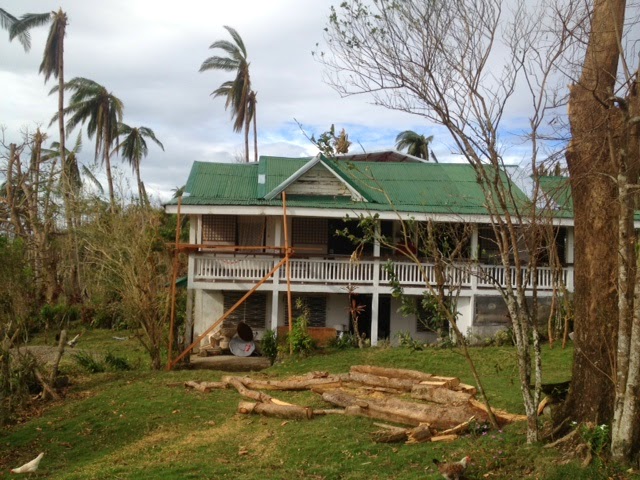I have been observing the tall Narra tree in my tiny front
garden for some time. It has been almost
twenty years since I planted it. I bought
it at a nearby government tree nursery and without a second thought of how huge
it could become, planted it on the side of my tiny front lawn.
From December to late January, it went through the slow
process of shedding off all of its leaves--- one by slow one. Every so often, I would take on the task of
sweeping the brown leaves and piling them beneath my garden plants. I am told this makes for a good cover to keep
the soil from drying out. (Also, it
saves me the trip of hauling the gathered leaves to a vacant lot).
Much of February, this Narra tree stood erect and bare and
seemingly without life. There were many late afternoons when I would seat and contemplate
its nakedness. What now tree? How much longer shall I wait for your shade? Should
I send for someone to trim you to a manageable height?
And just as slowly as it dropped its leaves, tiny nodules of
green sprouted over its limbs. By
mid-March, the Narra tree sported a short beautiful green cape.
This covering will spread over my tiny lawn
and provide the much welcome shade from the scourging sun of summer. Over time, the leaves will turn a darker
shade of green before they slowly and surely turn brown and drop off once more.
This tree and I shall continue to keep silent witness to
each other’s life cycle.
---xoxoxox---
I just mailed another tree postcard to my Niece. This is my very slow and continuing effort to
share with her my love for trees. (If
interested, you might want to read about the first two postcards by clicking here and here)
March, 2014
Did you know that the
Narra is the national tree of the Philippines? It is used for making fine
furniture. Ask you mom to show you a narra table or chair. During the Yolanda typhoon, the narra tree in
front of your great grandma’s house in Leyte helped protect the house from the
strong winds. The tree lost all its
leaves and the house was saved.
Keep safe/ love,
Tita J
 |
| Before |
 |
| After |
---xoxoxox---
There was a narra tree planted outside our house in Cebu
during the green revolution phase of then First Lady Imelda Marcos. Since it was outside our fence, I did not pay
much attention to it.
In my teens, the narra tree became a landmark when giving directions
to our house. “It’s the green iron gate, beside a narra tree”. If that was not enough, we added, “ look for a row of bongavilla and San
Francisco plants spilling over a barb-wire fence. “
In my twenties, the
narra tree stayed on but this time, my mother had barb-wire wound around its
trunk and had a concrete fence erected to replace the “see-through” barb-wire
fence. Security was not what it used to be and unsavory characters had taken to
climbing the narra tree to get into our yard at night.
Fifteen years ago, we sold our house and a seven-story
building now stands in its place. Unfortunately,
the narra tree was cut down. A
waste. Its value not appreciated.
---xoxoxox---
Being able to witness my narra tree complete another cycle
of its life is cause for celebration.
And I take inspiration from past birthdays when my mother would prepare
a huge juicy pork pot roast with gravy and steamed veggies on the side. Do celebrate with me by giving this a try.
My Mom’s Pork Pot
Roast
Marinade is for a kilo of pork: (best if you could get the rump or that portion used for making ham (bone-in). Otherwise, you could go for the flavorful but sinfully
(read: fat) delicious pork belly-- as I did. )
Marinate overnight with:
1 bay leaf
10 pepper
corn
4 t salt
Lots of
pepper
½ c vinegar
1 ½ T soy sauce
Mother’s tip: if you have a syringe, use it to inject the
marinate deep into the pork. If not, use
an ice pick and prick the pork all over ( also, a good way to get your
aggressions out)
My tip: Brine your pork overnight before you marinate it. What is this, you ask? Well, submerge your pork overnight in salted water (about 1/4 cup for every kilo of pork. Place in the fridge. Why, you ask? This makes for a very tender and juicy roast.) This step will add one more day to the process but it will be worth the wait.
Place pork into a crockpot or slow cooker with half of the
marinade. Cook on high for 2 hours and
set on low for 4 hours. (You might need to adjust time if more than 1 kilo
portion)
Remove the cooked and very tender pork and broil in the oven
until skin is crispy. Or you can use your turbo broiler, as I did, by setting
it on the highest temperature. (Kinda overdid the broiling on this one.)
Once done, let the pork rest for at least 10 minutes before
slicing. This will allow the juices to
settle in and not run out.
Gravy:
Try to remove as much of the fat/oil in the liquid that has
collected inside the crockpot. Strain
this liquid into a sauce pan. Bring to a simmer. Mix 1 t of cornstartch to 1 T of water. Add the slur to the liquid. Make more slur if sauce is not thick
enough. Stir until nice and thick.
Enjoy with steamed veggies.




.JPG)






No comments:
Post a Comment